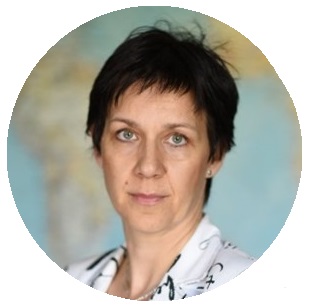
Climate Change Webinar series – 24-26 September 2024
Climate change is having an impact on ecosystems and agricultural production systems throughout the world. It influences international trade flows of plants and plant products, and it will change the infectivity, severity and distribution of plant pests throughout the world. Preventive, mitigation and adaptation measures are essential to limit the international spread of pests adapting to climate change.
This webinar series aims to raise awareness and discussions on how climate change affects plant pests, and how mitigating measures can protect plant health, and ultimately safeguard food security, the environment and international trade.
Click on the links below to view the recordings:
- Webinar 1: Climate change, plants and pests
24 September 2024; 10.00 CEST (CET + 1)
- Watch the recording here
- PowerPoint Presentations:
Horizon Scanning for plant pest prioritization Marc Kenis, Head Risk Analysis and Invasion Ecology, CABI
Current understanding of climate change science Dr Deborah Hemming, Scientific Manager, Vegetation-Climate Interactions group, Met Office Hadley Centre, UK
Climate Change and the Impacts on Plant Health - Case study in the Pacific Region Ngatoko Ngatoko, Director, Biosecurity Service, Ministry of Agriculture, Cook Islands
Climate impacts on pests Sandra Skendzic, Research Assistant (MSc), University of Zagreb Faculty of Agriculture, Croatia
- Webinar 2: Risk assessment
25 September 2024; 15.00 CEST (CET +1)
- Watch the recording here
- PowerPoint Presentations:
Climate Data and Climate Models for Plant Pests Christopher Randall, Sam Houston State University, Huntsville, Texas, USA
Climate-change impacts on plant pests: a technical resource to support national and regional plant protection organizations Prepared by the IPPC Focus Group on Climate Change and Phytosanitary Issues
Climate impacts on plants and pests in tropical areas Francislene Angelotti, Professor, Environmental Science and Technology Universidade de Pernambuco, Embrapa, Brazil
Pest risk assessment Ken Okwae Fening, Associate Professor of Agricultural Entomology African Regional Postgraduate Programme in Insect Science (ARPPIS)
- Webinar 3: Pathways and risk assessment
26 September 2024, 10.00 CEST (CET +1)
- Watch the recording here
- PowerPoint Presentations:
Pest reporting, surveillance and monitoring Sybren Vos, Team Leader Plant Health Monitoring PLANTS Unit – Ecotoxicology, Plants and Environment, EFSA
International cooperation and POARS Eunice Kagendo Lingeera Phytosanitary Inspector & Pest Risk Analyst, KEPHIS
Climate change and pest management Sonja Gvozdenac, Senior Research Associate Institute of Field and Vegetable Crops Republic of Serbia
Culturally Significant crops in Globally Important Agricultural Heritage Systems (GIAHS) Clelia Maria Puzzo, GIAHS Secretariat
Target participants:
National and regional plant protection organizations including pest outbreak response experts, inspectors, administrators, pest risk analysis experts, policy developers and laboratory technicians, researchers supporting NPPOs, producer/exporter associations, extension services personnel and local government authorities
Speakers:
Webinar 1: Climate change, plants and pests
24 September 2024; 10.00 CEST (CET + 1)
Facilitator: Dominic Eyre, Senior Plant Health Scientist Department for Environment, Farming and Rural Affairs, United Kingdom
 | Debbie Hemming Deborah is the Scientific Manager of the Vegetation-Climate Interactions (VCI) team at the UK Met Office Hadley Centre. She completed a PhD in Plant Science at Cambridge University in 1998 and followed this with two post-doctoral positions at the University of Ariona, USA, and the Weizmann Institute of Science, Israel, before joining the Met Office in 2024. She has extensive research experience conducting field, laboratory, and modelling studies to understand and quantify the responses of forest ecosystems to environmental changes. Her research involves the monitoring and modelling of ecosystem changes to advance understanding of climate and environmental changes and inform climate mitigation and adaptation actions. |
 | Marc Kenis Marc has a PhD in agricultural sciences from the University of Brussels, Belgium. He leads the Risk assessment and invasion ecology section at CABI in Switzerland. He has 35 years of experience in applied and environmental entomology, particularly in the field of ecology and management of invasive insects. This includes risk analysis, impact assessment, biological control and integrated pest management. He conducted field work and consultancies in more than 50 countries in Europe, Asia, Africa, North and South America. He presently runs horizon scanning exercises in several countries to prioritize actions against invasive plant pests and diseases. |
 | Sandra Skendži? Sandra is a final-year PhD candidate and research assistant at the University of Zagreb Faculty of Agriculture. Her research conducted within the AgroSPARC project focuses on the impact of climate change on crop production and agricultural pests, as well as adaptation and mitigation strategies to address these challenges. Sandra has extensive experience in managing and coordinating research projects, setting up and conducting laboratory and field experiments, and processing and analyzing research data. She specializes in the application of remote sensing and machine learning techniques to monitor and assess insect pest infestation stress and drought stress in cereals. In addition, she is experienced in teaching and mentoring students. Sandra holds a Master's degree in Phytomedicine and a Bachelor's degree in Plant Sciences from the University of Zagreb Faculty of Agriculture. She has received several awards for her significant contributions to agricultural research, including the Best Paper Award 2021 for her highly cited paper "The Impact of Climate Change on Agricultural Insect Pests" published in Insects. |
 | Ngatoko Ngatoko Ngatoko Ta Ngatoko is the Biosecurity Service Director at the Ministry of Agriculture, Government of the Cook Islands. He is responsible for the operational and strategic management of the national plant protection organization (NPPO) of the Cook Islands, tasked to prevent, manage and control animal and plant pests and diseases, generally known as animal and plant quarantine. Ngatoko is the Southwest Pacific Regional representative to the IPPC’s Implementation and Capacity Development Committee (IC), a member of the Commission on Phytosanitary Measures (CPM) Focus Group on climate change and phytosanitary issues and was the Southwest Pacific Representative to IPPC Standards Committee from 2011 to 2015. With over 37 years of experience working in the Cook Islands Government, he has served in various capacities in the plant health community. He was the Chair of the Pacific Plant Protection Organization (PPPO), team leader for the Emergency Response Plan (ERP), Incursion and Eradication Management Plan on the outbreak of Queensland Fruit Fly (Bactrocera tryoni) and Oriental Fruit Fly (Bactrocera dorsalis) and has been involved in establishing market access and quarantine bilateral agreements between the Cook Islands and trading partners. Ngatoko was a member of the NPPO/IPPC/RPPO working group on the Coconut Rhinoceros Beetle (CRB) awareness programme and the Regional Sea Container Hygiene System work programme to improve container cleaning facilities and safe handling. He has also been involved in the Fall Armyworm Surveillance Programme and delivering the GENS ePhyto training in collaboration with PHAMA Plus and the Australian Department of Agriculture. |
Webinar 2: Risk assessment
25 September 2024; 15.00 CEST (CET +1)
Facilitator: Karen Castro, Senior Risk Assessor, Botany Canadian Food Inspection Agency Ottawa, Canada
 | Christopher Randle Christopher is a Professor in the Department of Biological Sciences at Sam Houston State University. He earned his Ph.D. in Evolution, Ecology, and Organismal Biology from the Ohio State University in 2004. Most of his career has focused on the evolution and ecology of parasitic plants. As a field botanist, Randle has worked in southern and central Africa, Mexico, Brazil, and China, and has made contributions to taxonomic and molecular/phylogenetic studies, phylogenetic theory, and population genetics. As a post-doc at the University of Kansas (2004–2006), Randle was exposed to niche modeling through interactions with the lab of Town Peterson, but hadn’t had an opportunity to study it thoroughly until the summer of 2019. Since 2020 Randle has been the recipient of six APHIS Farm Bill 7721 1A awards focused on ecological niche modeling of invasive agricultural pests, including pests of major US commodities such as corn, cotton, small grains, soybean, and grapes, terrestrial gastropod pests, and timber pests. |
 | Ken Okwae Fening Ken is an Associate Professor of Agricultural Entomology at the University of Ghana - Soil and Irrigation Research Centre. He holds a BSc (Hons.) degree in Zoology and MPhil Entomology from the University of Ghana, and a PhD in Agricultural Entomology from Kenyatta University. He is the Sub-Regional Coordinator of the African Regional Postgraduate Programme in Insect Science (ARPPIS) – West African Subregional Centre, University of Ghana. Prof. Fening was a former Research Scientist (Entomologist) at the CSIR-Crops Research Institute in Kumasi. He was a CAPREx Postdoctoral Research Fellow and a Visiting Scientist at the University of Cambridge. Prof. Fening has collaborated with various stakeholders; GhanaVeg, HortiFresh West Africa, CABI Plantwise/ PlantwisePlus, Community Network for Vector-Borne Plant Viruses (CONNECTED), GIZ, USAID, Ghana’s NPPO (Plant Protection and Regulatory Services Directorate, PPRSD), NIAB, ICIPE, COLEAD, etc. in IPM, Quarantine Entomology, Sanitary and Phytosanitary measures.. |
 | Francislene Angelotti Francislene graduated in Agronomy from the Universidade Estadual de Maringá (2002), master's degree and doctorate in Agronomy from the same University. She is currently a researcher at the Brazilian Agricultural Research Corporation. She has experience in the field of Agronomy, with an emphasis on Climate Change, acting mainly on the impacts of climate on crops in the semi-arid region and also on the occurrence of phytosanitary problems, aiming at adaptation measures. She is also coordinator in the project about the impacts of climate change on phytosanitary problems considering the effects of temperature, increased concentration of carbon dioxide in the air, the geographical and temporal distribution. She is a professor in the postgraduate program in Environmental Science and Technology at the Universidade de Pernambuco. |
 | Dr. Glenn Fowler Glenn has over 20 years of experience as a risk analyst with the United States Department of Agriculture, Animal and Plant Health Inspection Service (APHIS), Plant Protection and Quarantine. His areas of interest include predictive mapping, quantitative risk analysis, and climate change. Glenn is a member of the International Plant Protection Convention Commission on Phytosanitary Measures Focus Group on Climate Change and Phytosanitary Issues and the APHIS Science Committee’s Climate Change Subcommittee. |
Webinar 3: Pathways and risk management
26 September 2024; 10.00 CEST (CET +1)
Facilitator: Hannah Serwaa, Assistant Director, Plant Protection and Regulatory Services Directorate, Ministry of Food and Agriculture Accra, Ghana
 | Sybren Vos Since 2021, Sybren has been leading the European Food Safety Authority (EFSA) Plant Health Monitoring team and supports the EU risk managers by identifying new emerging pests through horizon scanning activities, to prioritise Union Quarantine Pests, and to assist the EU Member states with the planning and execution of surveys of pests that might pose a threat to the European Union agriculture and environment. Sybren joined the European Food Safety Authority (EFSA) in 2008 in Parma, Italy, as a scientific officer, performing pest risk assessments for the European Union (EU) and contributing to the development of the methodologies for quantitative risk assessments in plant health. In 2017, he took on the important task to develop a harmonised method for plant pests surveillance in EU Member States. This work aims at facilitating consistent and comparable pest surveillance practices across the European Union. |
 | Sonja Gvozdenac Sonja is a senior research associate at the Institute of Field and Vegetable Crops National Institute of the Republic of Serbia, Sunflower department. She has MSc in Entomology and PhD in Phytopharmacy. She has gained additional professional training at Fakultät für Agrarwissenschaften, Georg–August–Universität Göttingen, Germany. Her research is devoted to integrated pest management (IPM), application of physical, biotechnical and biological methods in controlling harmful insects, ecotoxicology and risk assessment of pesticides for beneficial insects, adaptation of IPM measures to different conditions altered by the climate-change. She is a coordinator of a national project funded by the Science fund of the Republic of Serbia and is a member of Plant Protection Society of the Republic of Serbia, Entomological Society of Serbia, International Sunflower Association, Seed Association of Serbia, Serbian Society for Plant Physiology. She is a board member of the National Society of Processing and Energy in Agriculture and a member of Centre of Excellence for Innovations in Breeding of Climate-Resilient Crops. |
 | Eunice Kagendo With over 12 years of experience, Eunice Kagendo is a seasoned plant inspector, pest risk analyst, and plant pathologist with the Kenya Plant Health Inspectorate Service (KEPHIS), Kenya’s National Plant Protection Organization (NPPO). Eunice contributes to the National Multi-Institutional Technical Task Force on Emerging Pests and Early Warning Systems and the KEPHIS Technical Panel for reviewing draft protocols and standards under the International Plant Protection Convention (IPPC) guidance. Additionally, she serves as a Global Facilitator on Beyond Compliance tools in Systems Approach for pest risk mitigations and market access. Currently, Eunice is a member of the Steering Group (SG) on Pest Outbreak Alert and Response Systems (POARS). |
 | Clelia Maria Puzzo Clelia Maria Puzzo has extensive experience in programme coordination and project management in multilateral environments. During the past decade, she has contributed to the development of GIAHS as a corporate programme at FAO, including supporting the dissemination of the GIAHS approach among member countries, working with rural communities worldwide, leading capacity-building activities, multi-stakeholder consultations, and political negotiations concerning the integration of agricultural heritage in rural development strategies. Clelia has a background in International Affairs, with a focus on Agricultural Policies, and she is a PhD candidate in Agri-Food Economics at the Polytechnic University of Valencia, Spain. |
| Titre | Fichiers | Publications date |
|---|---|---|
| Climate Data and Climate Models for Plant Pests | En | 26 Sep 2024 |
| Technical resource to support national and regional plant protection organizations | En | 26 Sep 2024 |
| Climate impacts on plants and pests in tropical areas | En | 26 Sep 2024 |
| PEST RISK ASSESSMENT | En | 26 Sep 2024 |
| Case Study on the Impact of Climate Change Pacific Region | En | 26 Sep 2024 |
| Climate impact on pests Skendzic University of Zagreb | En | 26 Sep 2024 |
| Climate Change Science - Debbie Hemming | En | 26 Sep 2024 |
| Horizon scanning | En | 26 Sep 2024 |
| Culturally Significant crops in Globally Important Agricultural Heritage Systems (GIAHS) | En | 26 Sep 2024 |
| International cooperation and POARS | En | 26 Sep 2024 |
| PEST REPORTING, SURVEILLANCE AND MONITORING_Gvozdenac Sonja | En | 26 Sep 2024 |
| PEST REPORTING, SURVEILLANCE AND MONITORING_Sybren Vos | En | 26 Sep 2024 |

